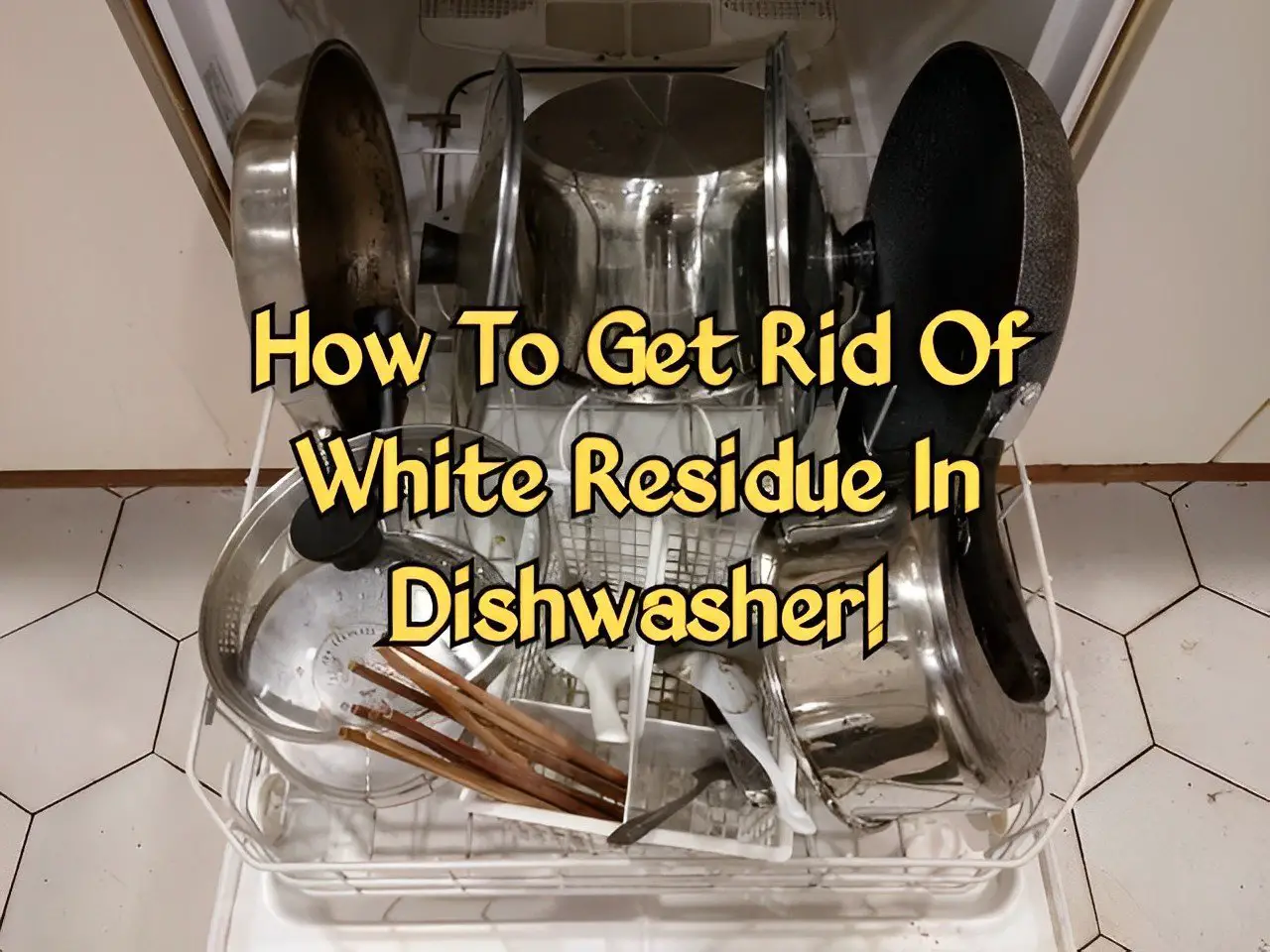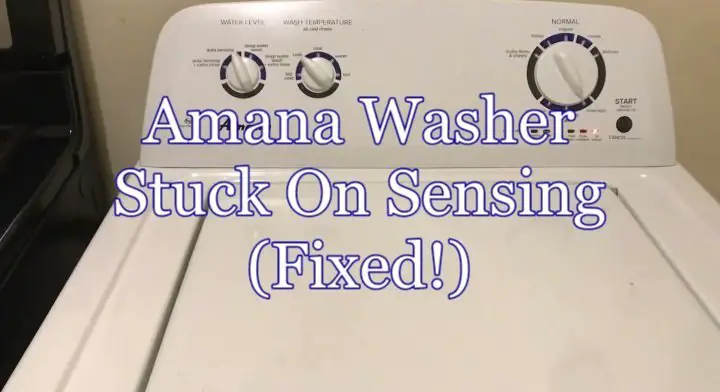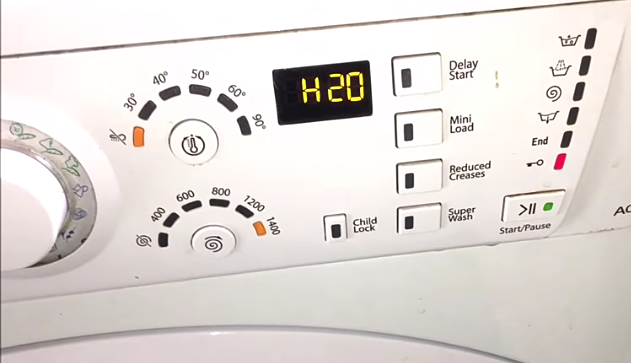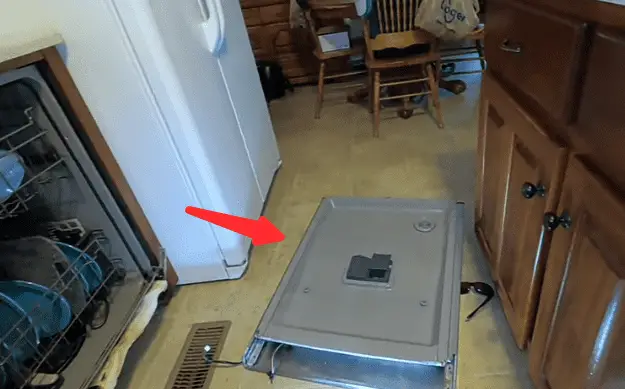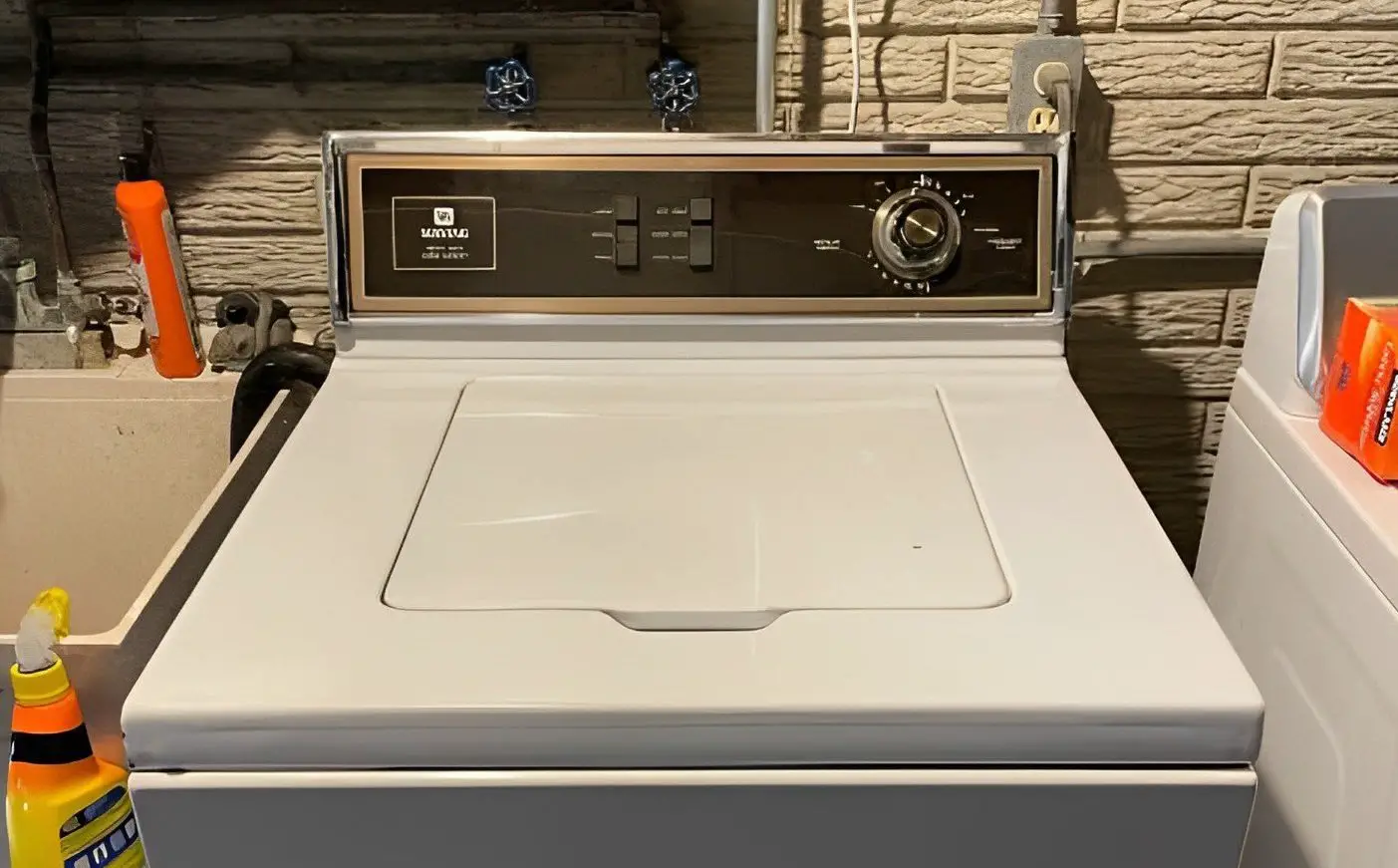Many people like you and I actually rely on dishwashers to clean our dishes quickly and efficiently.
But it becomes a problem when it’s actually doing the opposite.
It’s really frustrating if your dishwasher leaves white residue on dishes and at the bottom.
However, there are a few reasons why this might be happening; it includes the use of hard water, soap buildup, using the wrong and incorrect amount of detergent, faulty water heater and improper arrangements of the dishes.
Below, we’ve highlighted a detailed analysis of the causes of the white residue in dishwasher and how to remove it.
Why Does My Dishwasher Leave White Residue?
The main reasons why your dishwasher could be leaving white residue on dishes includes the following:
1. Hard Water
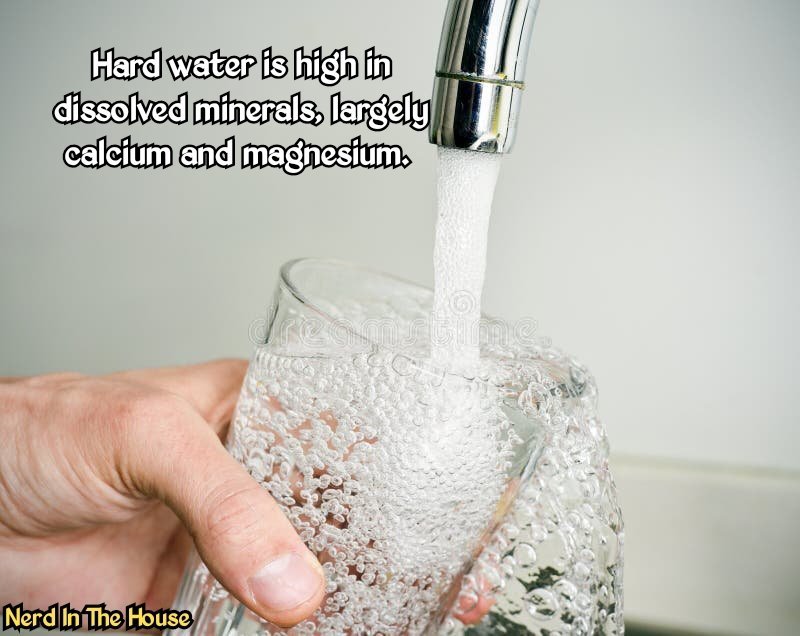
This is without a doubt one of the most prevalent causes of white residue on your dishes.
Generally, hard water is water that contains a large amount of calcium and magnesium carbonates in addition to other dissolved minerals.
It might be beneficial in some cases but it has its own disadvantages too.
Hard water makes it difficult for your dishwasher to clean dishes properly, as a result it leaves white film or spots from mineral deposits behind.
However, some dishwashers are manufactured with a dedicated salt compartment usually having a built-in water softening system which helps to eradicate hard water stains.
This way, constant issues with hard water can be subsidized.
2. Wrong Type Of Dishwasher Detergent
Using low quality liquid or powered detergent can lead to white chalky stains resulting from detergent residues after washing your dishes.
Your dishwasher might not work properly with a specific detergent.
It’s high time you consider what’s recommended in the owner’s manual in order to ensure optimum performance.
Researchs has it that tablet performs better than powder and liquid detergents. Although the former might be more expensive than the latter.
However, It is recommended that you use dishwasher detergents that contain phosphates in order to prevent this problem.
3. Too much detergents
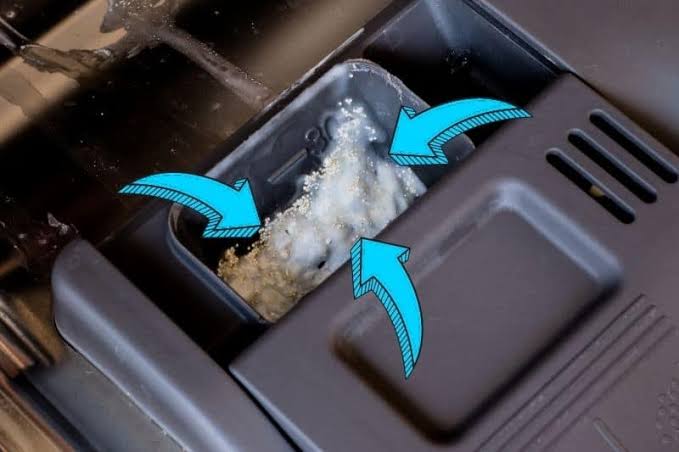
While you might be using the right type of detergent for your dishwasher, you should also pay attention to the quantity.
Using too much detergent often leads to suds and accumulation of detergent residues.
That is why you will find some bits of detergent wedged in the finger grooves of your dishes, glasswares and white residue in dishwasher.
However, the amount of dishwasher depends on several factors such as the soil level and type of detergent.
Ideally for a full load of dishes, you should use 1 to 2 tablespoons of detergent. But using more than this is considered too much and can cause residues to remain on your dishware.
4. Water Temperature
If your dishwasher water temperature is too low, the appliance might not be able to dissolve and activate the detergent.
As a result of this, it leaves white residue behind in form of undissolved soap. The water temperature in your dishwasher is required to be 120°F for the best cleaning results. If the temperature is significantly below this value, it won’t be able to dissolve dish detergent, pods and break down grease on your dishes.
5. Faulty Water Heater
Another similar point which is also related to the water temperature is the heater itself.
If the water temperature is constantly too low, it’s possible that the water heater is malfunctioning.
If the water heater is not heating the water to the required temperature, it can affect the cleaning process and make your dishwasher to have white residues in it.
Although, even with a broken water heater; most modern dishwashers can still heat cold water to certain temperature because they have their own heating elements.
The only downside is that it might take longer for your normal dishwashing cycle to complete because of the need to register right water temperature to clean your dishes effectively.
6. Improper loading technique
Sometimes, placing your dishes to close to one another in the dishwasher can prevent effective cleaning. This is because hot water might not reach important areas and surfaces which causes detergent and minerals to accumulate.
Nonetheless, stuff like this may eventually lead to white residue after dishwasher cleaning cycle.
You can check your dishwasher manual for specific loading instructions.
7. Clogged Spray Arms
If your dishwasher spray arms are clogged, it prevents water from getting evenly distributed. This might be a less common cause but it’s important that you take note of this in case. It could be a reason why your dishwasher leaves white residue.
It is important to clean the spray arms regularly in order to prevent this problem.
How To Get Rid Of White Residue In Dishwasher?
After knowing the causes of the issue, next is to know how to get rid of them.
Below are the few methods which you can use to remove white film or residue in your dishwasher.
Method 1: Using Vinegar
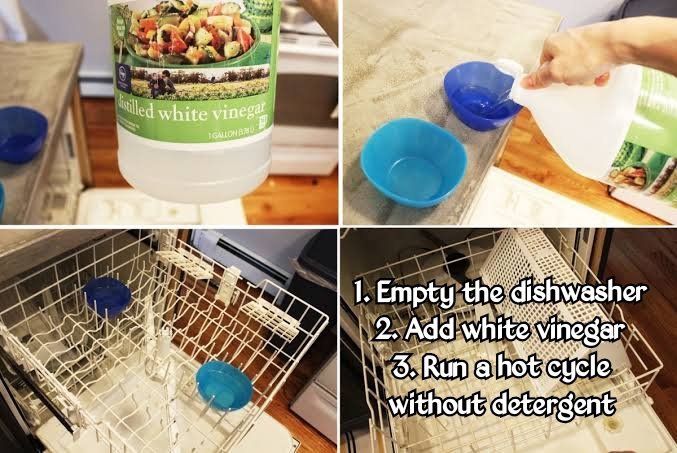
Vinegar is one of the most common methods which is widely talked about amongst people.
But have you been using it the right way, here’s how to effectively utilize the acidic liquid for better results.
- Step 1: Empty the dishwasher by removing all the dishes and racks in it. This will give you a clearer view of the inside and make it easier to add the vinegar.
- Step 2: Fill a dishwasher-safe cup with white vinegar then place on the bottom rack.
- Step 3: Let it sit for a while, then close to the dishwasher and run a hot water cycle without any detergent.
Note that using a rinse aid in your dishwasher helps to minimize residue buildup on dishes.
Quick Tip!
Ensure that you don’t combine vinegar with any detergent while using the vinegar soak method.
Effectively using vinegar will help dissolve the mineral deposits and detergent residue.
Method 2: Using Dedicated Dishwasher Cleaners
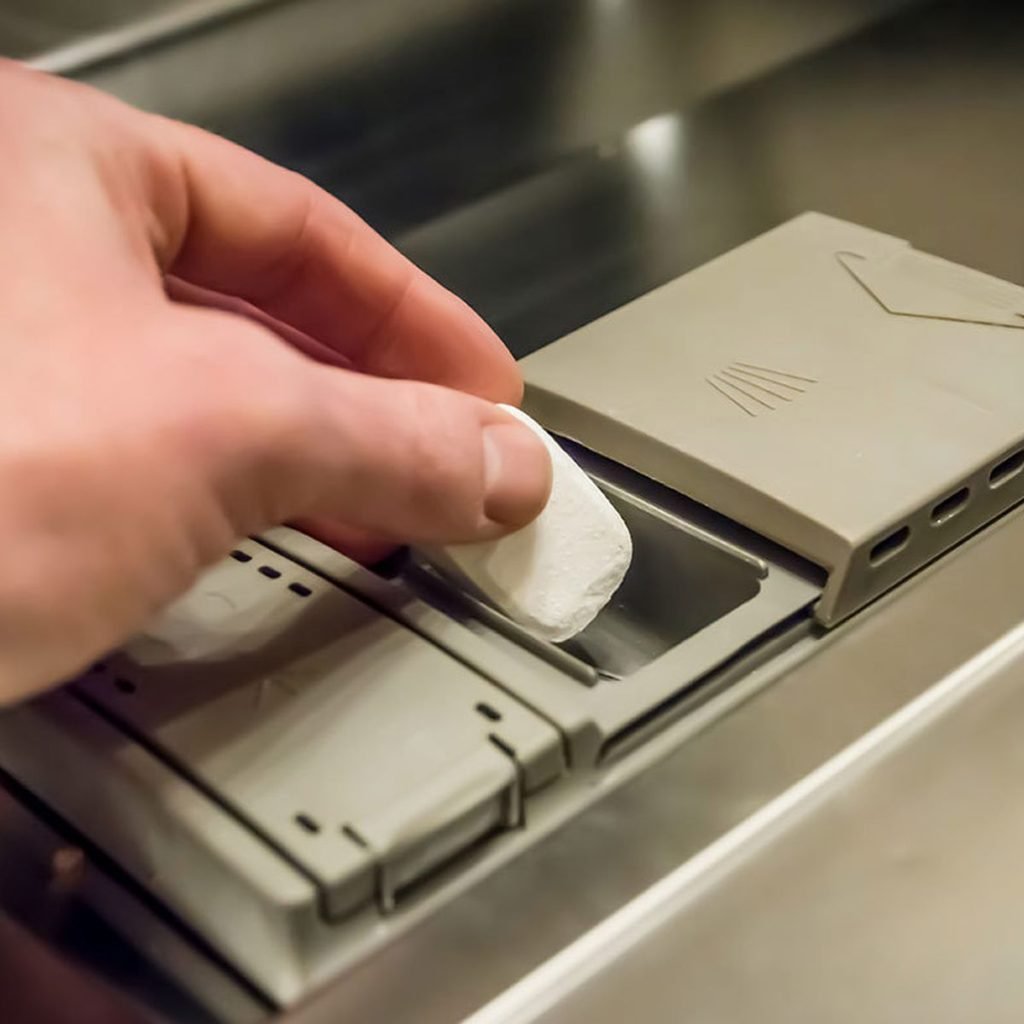
There are some effective dishwasher cleaners that can also work the same way as vinegar.
A popular one to use is Seventh generation dishwasher detergent. It’s environmentally friendly and it helps to tackle the problem effectively.
- Step 1: Purchase a compatible dishwasher cleaner from a nearby store.
- Step 2: Go through and follow the instructions on the cleaner’s packaging for dosage and usage.
- Step 3: Run a rinse cycle to clean the dishwasher. This is important to remove traces of the dishwasher cleaner.
Method 3: Using Citric Acid
Utilization of Citric acid is another method that effectively removes mineral deposits and residue.
Below are the procedures to follow for effective results.
- Step 1: Make sure there are no dishes inside by emptying the dishwasher.
- Step 2: Dissolve 4 tablespoons of citric acid powder in a bowl containing warm water. Then pour the solution into the bottom rack of the dishwasher.
- Step 3: Run a rinse cycle to help remove residue and keep your dishwasher fresh.
Method 4: Scrub With Baking Soda
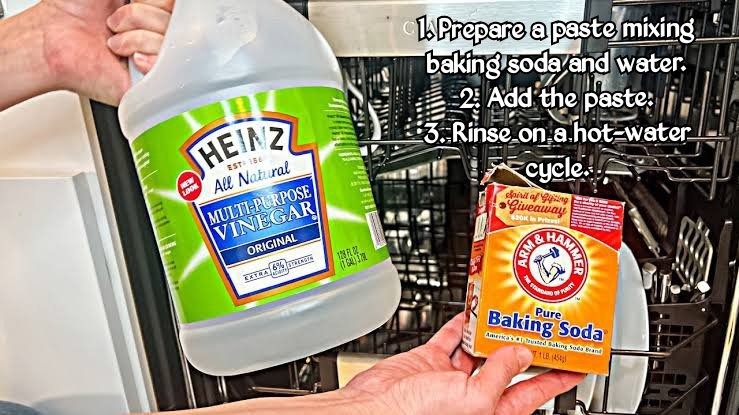
Removing persistent white residue in your dishwasher can be done with baking soda also. Here are the steps you need to follow below.
- Step 1: Prepare a paste using the mixture of baking soda and water.
- Step 2: Add the paste to a damp cloth or sponge, then proceed to scrub the interior surfaces of the dishwasher. While scrubbing, pay attention to areas with visible residue.
- Step 3: Lastly, rinse on a hot-water cycle and you’re good to go.
Conclusion
There are various reasons why your dishwasher is leaving white residue on dishes and in the bottom of your dishwasher. These might be due to water temperature, too much detergents, improper loading technique, living in areas with hard water, or the type of detergent being used.
With the above detailed article, it should be easy for you to get rid of the residue in no time. I hope this helps, thanks for reading!
